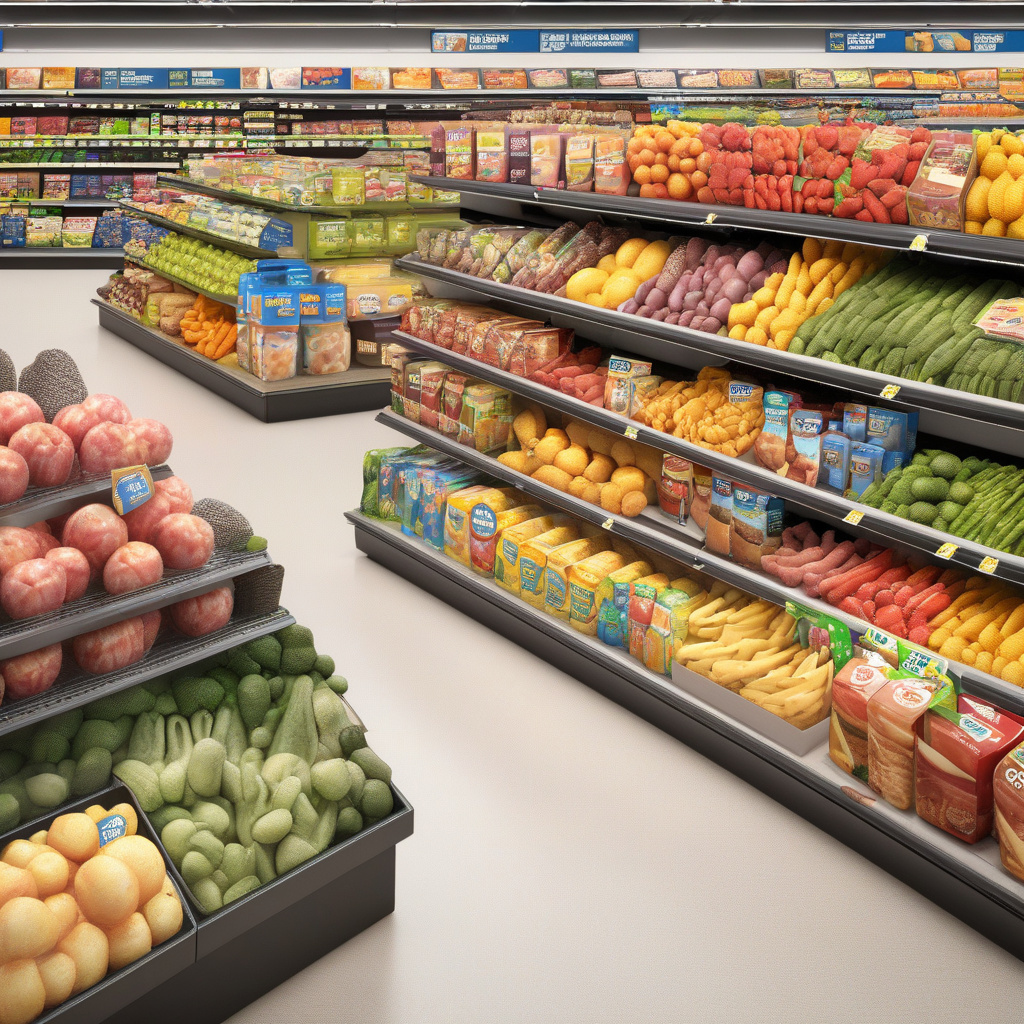Aldi Surpasses Asda on Food and Drink Sales for the First Time
In a remarkable shift within the UK grocery market, Aldi has officially overtaken Asda in food and drink sales, marking a significant turning point in the competitive landscape of supermarkets. This development not only highlights Aldi’s growing popularity among consumers but also serves as a stark warning to Asda, which has been facing numerous challenges in recent years.
The data indicating Aldi’s rise comes amid a backdrop of changing shopping habits, where value for money has become increasingly paramount for consumers. As inflation continues to impact household budgets, shoppers are more inclined to seek out affordable options without compromising quality. Aldi’s reputation for offering high-quality products at competitive prices has positioned it as a go-to choice for budget-conscious consumers.
In the past, Asda, a traditional heavyweight in the UK supermarket scene, was known for its expansive range of products and services. However, it appears that the chain’s reliance on its established brand may have hindered its ability to adapt to the rapidly changing market. As consumers become more price-sensitive, they are turning to alternatives like Aldi, which has effectively capitalized on the demand for low-cost groceries.
Aldi’s success can be attributed to several key factors. Firstly, the brand has consistently focused on streamlining its operations to reduce costs. By adopting a no-frills approach and minimizing overheads, Aldi has been able to pass savings onto its customers. This strategy resonates with shoppers who are looking for the best deals, especially in the current economic climate.
Moreover, Aldi’s expansion strategy has played a critical role in its ascent. The supermarket chain has aggressively opened new stores across the UK, increasing its footprint and accessibility for consumers. This expansion not only allows Aldi to reach new customers but also enhances brand visibility, attracting even more shoppers seeking affordable alternatives.
Additionally, Aldi’s commitment to quality has not gone unnoticed. The retailer has invested heavily in its product offerings, ensuring that its private-label goods compete with well-known brands. Many consumers are now willing to choose Aldi’s products over traditional brands, as they are often perceived to be of equal quality at a fraction of the price. This shift is particularly evident in categories like fresh produce, meat, and dairy, where Aldi has gained a loyal following.
In contrast, Asda’s struggles can be linked to a series of strategic missteps. The supermarket has faced criticism for failing to keep pace with changing consumer preferences and for not adequately addressing the increasing demand for lower-priced options. While Asda has made efforts to enhance its value proposition, including price cuts and promotions, these measures have not been sufficient to halt the decline in market share.
Asda’s challenges are compounded by the fierce competition within the grocery sector. The rise of discount retailers like Aldi and Lidl has created an environment where traditional supermarkets must constantly innovate to retain their customer base. While Asda has attempted to distinguish itself through various initiatives, such as expanding its online shopping capabilities, it has struggled to regain the momentum it once had.
The implications of Aldi’s victory over Asda in food and drink sales extend beyond mere numbers. This shift signals a broader transformation in consumer behavior and preferences. As more shoppers prioritize value, retailers must adapt to meet these demands or risk falling behind. The grocery landscape is increasingly characterized by price wars, and those who fail to offer competitive pricing may find themselves losing market share.
Looking ahead, Asda faces the challenge of redefining its brand and value proposition in light of Aldi’s rise. To remain competitive, Asda may need to further invest in its private-label products, enhance its customer experience, and explore innovative ways to connect with shoppers. Additionally, analyzing Aldi’s successful strategies could provide valuable insights for Asda to recalibrate its approach.
In conclusion, Aldi’s surpassing of Asda in food and drink sales is a significant milestone that underscores the changing dynamics within the UK supermarket sector. As consumers continue to seek value and quality, retailers must adapt to these shifts to thrive. The competition is fierce, and only those who prioritize affordability and innovation will succeed in this evolving landscape.
Aldi, Asda, supermarket, grocery, consumer trends
